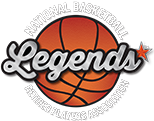Cooz & Erskine – Tales of Old NY, New England and the Deep South
By Peter Vecsey
I’ve always liked older people.
Old people, actually.
Always liked being around them as a kid. Cutting their lawns, shoveling their steps and driveways, walking their dogs, listening to stories about their lives when they were young.
I’ve always gravitated toward old people. I don’t mean people perceived as being old, like we did as youngsters when we thought men and women in their 30s were ancient. I’m talking about people who needed a ride home after a game or from Queens/Long Island to the city for weekly chemotherapy sessions.
To this day, I savor nights of hanging out with old timers at the Friar’s Club, Toots Shor’s, the Copacabana, Wally’s. Remember every tale they told; being at Yankee Stadium when Babe Ruth and Lou Gehrig hit back-to-back homers--an inside-the-park job by Gehrig; seeing Pete Reiser crash into the Ebbets Field outfield wall in pursuit of a line drive; witnessing the warfare between Wilt Chamberlain and Bill Russell in the first game of a doubleheader at the old Garden; recalling how an infinitely respectful young coach, Bob Knight, after dining with Clair Bee, Nat Holman and Joe Lapchick would give a lift home to whomever needed it.
Now that I’m authentically old testament, I appreciate the company of citizens my senior that much more, well, their phone voices, anyway.
Lately, though, my old-folks fascination has advanced to a peculiar phase. For the last several weeks, I’ve interviewed nothing but nonagenarians, all astonishingly cogent! Not a cane for the brain among them!
You know about Harold Gifford, age 97, the pilot who saved the Lakers’ team from instant extinction—or even a single injury for that matter—in 1960 when he landed a damaged DC-3 at night in a Carroll, Iowa, cornfield during a snowstorm after five hours and 40 minutes in the air without a radio, heat or lights from the git-go, only a prayer.
‘Giff’ and I have communicated a lot recently. I even received a delightful Lacquie Lawson Easter ecard from him. As soon as it’s safe to visit him following my second vaccine shot, the plan is to fly or drive to Minneapolis.
“If you drive, you can stay with me,” he said. “If you fly, I’ll pick you up at the airport, and you can use my Lexus while you’re here.”
I’m gonna take a wild stab that the car ain’t old.
******
Another nonagenarian I’m in touch with on a recurring basis is Carl Erskine, 94, the last living member of Roger Kahn’s ‘The Boys of Summer’.
In the conceivable future, you’ll be reading many memories in this space from the right-handed pitcher, who lives in his hometown of Anderson, Indiana with his high school sweetheart, Betty Palmer. His son, Jimmy, whom doctors early on decided wouldn’t last till 30 due to Down Syndrome, turned 61 last week...
...unless I decide to hoard them for a chapter in The Book I’ll Never Finish.
OK, OK, I’ll share one.
During Erskine’s 12-season career with the Dodgers (122-78, including a pair of no-hitters) the batter he faced most was Stan Musial.
“I had a good won-lost record against the Cardinals, but Musial was the most difficult hitter I ever faced. He was a pure hitter, hit to all fields.
“Of the 164 at bats, in over 300 innings, I struck him out four times.”
Erskine said Musial loved telling people, “Carl had a great curveball. Neither he nor I could figure out how I hit him so well.”
After they’d retired, Erskine and Musial got acquainted in an unusual way. Both were invited to a private party. Al Hirt, purportedly the world’s meanest trumpet player, was the orchestra leader.
When dining at Musial’s St. Louis restaurant, Stan the Man told Erskine he was going on stage to play the harmonica.
When Hirt ate there, he often spontaneously entertained guests and Stan wanted to return the favor.
“Too bad I didn’t bring my harmonica,” said Erskine, who played the national anthem at roughly half-a-dozen Pacer games over the years. “I’d go up there with you.”
Musial reached into his pocket and produced a second harmonica. Afterward, Erskine told him, “You’re a lot easier to play with than against.”
*****
Bob Cousy, age 92, is the third nonagenarian I was exceptionally privileged to go one-on-one with of late, for an hour or so.
In my early teens, I’d jump the fence at a nearby schoolyard, and pretend I was both Cousy and Dick McGuire (and mimic Marty Glickman doing the play-by-play), the two greatest eyes of the cutters during the ‘50s and ‘60s, maybe ever.
McGuire played for St. John’s, then the Knicks before being traded to the Pistons. After getting cut his freshman and sophomore years, Couz played 1½ seasons at Andrew Jackson High School in Queens. I grew up a few miles away in Holliswood.
Universally acclaimed as the Houdini of the Hardwood, Cousy, 15 years older, greatly influenced my feeble around-the-back dribbling, look-away passing style (which habitually pissed off Archbishop Molloy coach, Jack Curran: “Who do you think you are, Bob Cousy!” he’d screech) as he did for thousands upon thousands of other impressionable kids.
How could we not want to be like Mr. Basketball? Cooz made First Team All-NBA ten straight years, was the MVP (1957) season, led the league in assists eight consecutive seasons and played on six championships teams during his 13-year career with the Celtics.
Naturally, if you’re reading this, you already know everything there is to know about Bob Cousy. Every accomplishment in college (a freshman on the Holy Cross ‘47 NCAA championship) and as a pro is duly documented in books, magazines, newspapers, in stone and sonnets by the best in the sports writing business. The New York Times’ Pulitzer Prize author, Dave Anderson, wrote he majored in Cousy” while they were classmates at HC, where he was sports editor of the school paper.
Still, I always feel there’s a story or two to be told no matter how many times someone’s been interviewed. Or maybe there’s more to a story that’s been frequently told. Or maybe there’s a topic interviewers have been reticent to broach.
Like Cousy’s lisp. “I talk funny, no doubt about it. I was in my mother’s stomach when my parents migrated from France through Ellis Island. I spoke only French the first five years of my life.
“I learned English in the street. Couldn’t pronounce my r’s. I rolled them. Was it a speech impediment? The kids called me ‘Flenchy’. That’s what kids did, trade ethnic insults, part of the street ethos, identifying people by their flaws.
“I finally learned to live with it. When I moved to New England, the situation got more prominent. New York slang coupled with New York twang. Words came out sounding like goulash.
“It was very hard on the ears, especially all those years I worked as an analyst on TV. English teachers would send me ‘Get out of the business’ letters. My articulation was painful to their ears.
“Well, here I am 92, and I still speak funny. And I don’t give a shit anymore! Never been insecure about it, honestly.”
In 1950, Cousy was a rookie, as was teammate Chuck Cooper, one of the NBA’s first three black players—Earl Lloyd and Nat ‘Sweetwater’ Clifton—to enter the league that season. They roomed together.
“I don’t think anyone knew we were rooming together except Red (Auerbach). We didn’t do it for any political reason. We bonded. We simply had a lot in common. The same interests. Liked the same movies. Liked slow, quiet jazz. Liked the game.
Three years later, the Celtics were in Raleigh, NC, for an exhibition game. The hotel wouldn’t let Cooper stay in the same hotel as the team. Auerbach raised a fuss and was prepared to call off the game.
“We told him not to sweat it,” Cousy said. “Let’s play the game and we’ll catch a train through New York. We’ll see you in Boston.” Red went along with it. A 12:30 AM sleeper was booked.
Back in those days, Cousy said, “We didn’t snort, inhale, inject funny substances, or take un-prescribed pills. However, we did drink a lot of beer.”
Cousy and Cooper got to the station a couple hours ahead of time and drank till “we had to take a whiz badly.
“Chuck was from Pittsburgh, and thought he was pretty cool. I’m from New York and fancied myself as being sophisticated. But neither of us had ever seen a bathroom sign pointing to ‘colored’ one way and ‘white’ the other way. I teared up. I was ashamed to be white.”
Cousy and Cooper searched for another relief option. “We went out on the end of the platform. There might’ve been another person at the other end. We peed alongside each other off the platform. A real Rosa Parks moment. I haven’t told that story very often.
“This was 1953,” Cousy said, laughing. “If some redneck cop had seen us, he could’ve shot both of us and gotten away with it.”


